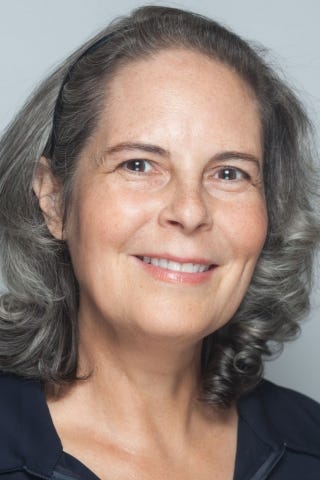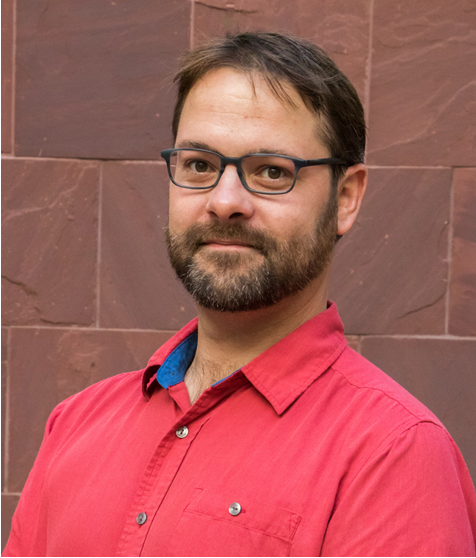Finding Fulfillment Through Breadth, Depth and Collaboration
The value of dialogue and reflection.
My Journey
A 65-person collaboration!
Since beginning these newsletters, I’ve come to realize that one component I truly enjoy in my mental health, science and faith efforts is dialogue. That may sound odd, as I’m in the midst of writing to, and not conversing, with all of you in this newsletter. But it also reflects my attitude. Indeed, many of the topics I share in these writings have emerged from ongoing dialogues with you, through messages and in-person chats.
I’m grateful for the many ways I’m able to engage in deep, thoughtful and meaningful conversations with so many of you. In my speaking events, there’s something special about fielding questions from people who are deeply invested in the topic at hand. Sometimes this feeling arises in my informal discussions with students or community members. I definitely feel this in my Addy Hour podcast conversations. But I also feel it in conversation with classmates in my School of Management leadership class.
I would venture to say that in each of these scenarios, I’m experiencing “flow” — a term coined by psychologist Mihaly Csikszentmihalyi where one is fully absorbed and simultaneously fulfilled while performing a perhaps challenging, but completely doable task or endeavor.
Last month, I wrote about my ongoing tension between speaking from depth of expertise, or speaking to a wide breadth of societally relevant topics, but with less depth. In response to that newsletter entry, I received encouraging and thoughtful feedback from you all. I greatly appreciated your input.
Over the last few weeks, I’ve also experienced several confirmations on the utility of what I’ll call “collaborative breadth.” Earlier this month, I joined Dr. Jeffrey Borenstein for an episode of his PBS program, “Healthy Minds.” The topic of our conversation was “Chemical Dependency: A Holistic Approach to Treatment.”
I went back to re-listen to our conversation, which we recorded prior to the May 1 release date. I’m grateful for the questions Dr. Borenstein asked on behalf of his viewers. The range of topics compacted into a 26-minute interview was truly impressive! We discussed mental health, the brain biology of specific mental illnesses, stigma, signs of mental illness, how to support friends and loved ones and navigate trauma, the role of faith, and much more!
At the end of our recording, I remember feeling a bit drained. It was like I had just sprinted through a forest, constantly changing direction, finally arriving at the finish line both fulfilled and exhausted. But in listening back to our conversation, I was blown away by both the breadth and depth of our conversation. I realize this statement might seem narcistic. But with my ongoing tension around depth and breadth, the interview was a tangible reminder of the breadth and depth that I’ve been able to build through so many collaborations.
In a concrete way, part of that collaboration is a result of the Addy Hour podcast. We’re 40 episodes into the podcast, where I’ve been blessed to host more than 65 guests. I’ve learned so much from each of them, as they’ve shared their stories and their expertise. I’ve also learned a great deal as I’ve done my research in preparation for each episode. It’s been eye opening and educating to learn about my guests and their efforts in so many societal spheres. I’ve also greatly benefited from our off-camera interactions, whether in prep calls or in casual conversation.
As I’ve travelled the country to speak to different groups, I’ve also tried to maintain a learning mindset, where I’m truly listening to and learning from the communities I’m speaking with. This same approach has been important in my roles as a professor, mentor and administrator.
I recently had the opportunity to speak at an early morning, faith community men’s gathering in New York City. I was invited to share about mental health and faith, based on my work and expertise. This is a relevant topic for faith communities, and men especially, given our societal precedent to keep our emotional and mental health challenges to ourselves. Thankfully, this is changing. This gathering blessed me immensely as the 50 or so participants gathered in the room were deeply engaged in the conversation. Their investment was clear to me both from the expression on their faces, and from their thoughtful questions, comments and dialogue.
Once again, I was surprised by my ability to interweave my personal narrative, the stories of others, and research evidence on a wide range of topics. As I’ve alluded to a few times in these Addy Minute writings, I probably shouldn’t be surprised at my ability to effectively engage in these conversations. I’ve received wonderful mentoring, coaching, guidance and feedback on public speaking over the years. I’ve also been intentional to include scientific research and effective clinical practices in my speaking events or interviews. Additionally, I’ve tried to cultivate the growth and enjoyment that can come from spending time with different types of people, even those who I wouldn’t naturally gravitate toward. In doing so, I’ve gained many unexpected mentors and friends over the years. So, I'll endeavor to embrace both breadth and depth as I continue forward in these collaborative efforts.
Wellness Tip
Identifying Unnecessary Pressures
Many of us navigate the day-to-day with many competing demands for our time, attention and energy. This includes expectations at home, school or work, or from friends, relatives or even strangers on the other side of the planet (thanks a lot, technology!). I’ve noticed in myself — and others — that we often misidentify our own internal pressures, mislabeling them as external.
Let’s take a lighthearted example. I started this newsletter in December with the goal of releasing a newsletter every other week. I found the bi-weekly cadence very feasible early on, especially since I was on a mini-sabbatical. Now that I’ve returned from my “break,” it’s been more difficult to maintain that pace. Still, I’ve felt a strong pressure to keep this somewhat arbitrary schedule. After all, you all were expecting a newsletter every two weeks! Maybe you would miss the newsletter, or you would stop reading if it arrived less frequently. I acknowledge this may sound a bit extreme; however, I share this because it’s easy to see how quickly I took an internal pressure of maintaining my newsletter schedule and reimagined it as an external pressure from you, my readers.
If you’re honest, there are probably ways you’ve done the same thing in your own life.
Perhaps, you feel like you’re letting people down if you can’t respond to that email, request or task as promptly as you said you could. Maybe you feel like you’re a bad parent if you don’t take your child to that weekend party or event — even though you’ve taken them to activities for the last 10 weeks! Or maybe someone made a request that seems outside your current capacity. Somehow, you convince yourself that your co-worker, friend, loved one, supervisor, professor or students will feel extremely disappointed and hurt and be dismissive toward you if you say “no” or “not yet,” or ask for an extension.
Realistically, many people completely understand if we honestly communicate why we’re saying no. Of course, there are exceptions — especially if we’re perpetually late or frequently miss deadlines — but in many instances, we are putting undue pressures on ourselves. Many times, it’s simply a matter of saying “no” to one thing, so you can say more fully say “yes” to something else.
This week, I encourage you to evaluate whether the pressures you’re feeling are external, internal, or a mixture of both.
Try asking a trusted friend whether they think the pressures you’re facing are external or internal. Sometimes, the ones requesting our time and effort are more flexible with us than we are with ourselves. Perhaps, others have not even requested your time and effort in the first place, and you’ve put the unnecessary pressure on yourself due to your perception that you should perform, assist or provide more than you are.
For a deeper dive into this topic and some additional tips, check out this article by Madison Gonzalez.
A Look Ahead
Earlier this month, the Rev. Dr. Otis Moss III joined for a wonderful Addy Hour conversation on “Justice, Activism and the Black Church.” Dr. Moss shared so many nuggets of wisdom for each of us and for society. It was truly inspiring to hear about his church and community transformative work on the South side of Chicago – even in the face of opposition, as Dr. Moss poignantly describes here.
As he also shared in the episode,
“We find that home ownership, plus jobs, plus churches that are engaged, reduces violence dramatically. Then add gardens to the table, plus libraries and schools, the trend goes down even farther. So that’s what we’re trying to do. It’s not rocket science. We’ve been doing this for a long time. We know how to do it.”
As we continue this theme of society, stay tuned for next week’s episode: “Neuroscience and mental health research – impact or flop?” I’ll be joined by psychiatrist Dr. Diana Martinez, from Columbia University, and neuroscientist Dr. Steven Mahler, from the University of California, Irvine. We’ll jump into a conversation about their research, and their broader efforts in the classroom and in society.





